#gyula andrássy
Text


While we do not have official confirmation yet, showrunner Katharina Eyssen is currently preparing a third season of The Empress (2022).
We can see in her notes that we will probably meet Elisabeth's Hungarian lady-in-waiting Ida Ferenczy as well as Gyula Andrássy and a character named Konstantin. Another note hints at Crown Prince Rudolf and Archduchess Gisela being in the third season. Furthermore, we may explore Elisabeth going to Corfu alongside her mental health.
#The Empress#Die Kaiserin#The Empress (2022)#costume drama#historical drama#period drama#Katharina Eyssen#Ida Ferenczy#Gyula Andrássy#Gyula Andrassy#Crown Prince Rudolf#archduchess gisela of austria#Elisabeth in Bavaria#elisabeth of austria hungary#elisabeth of austria#german tv#german series#behind the scenes#Netflix
13 notes
·
View notes
Photo
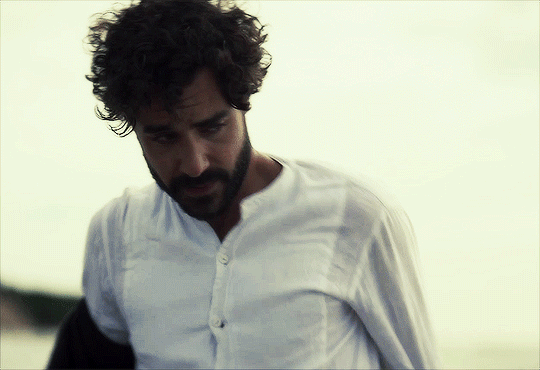
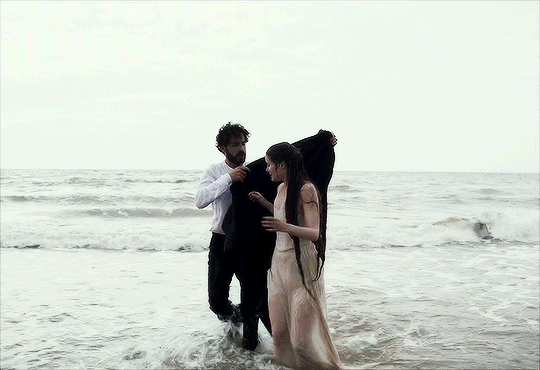
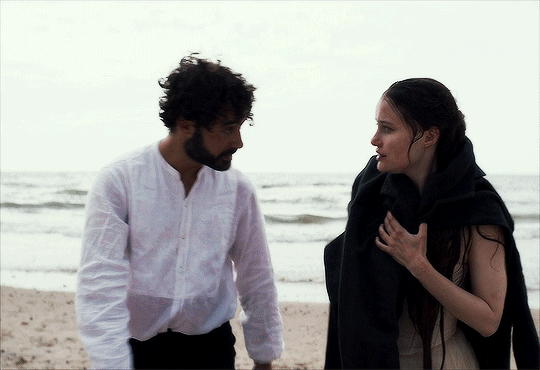
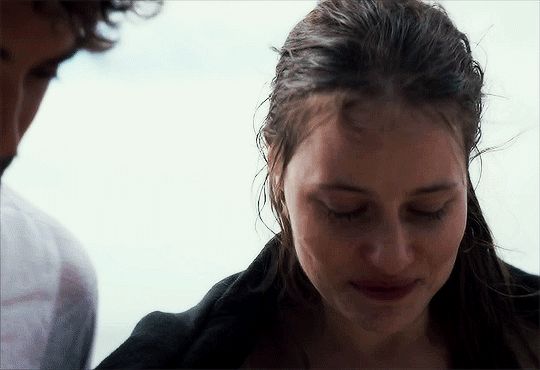
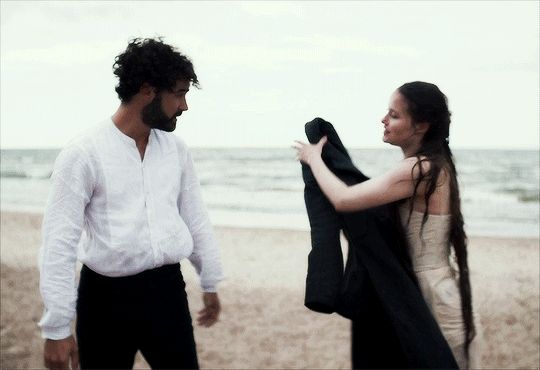


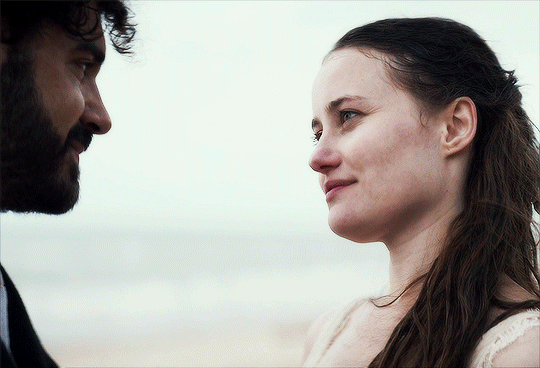
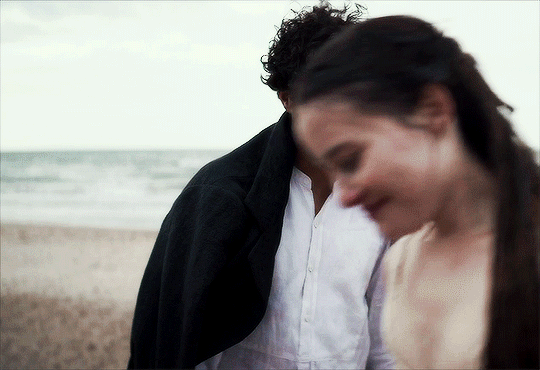
Count Andrássy Gyula and Empress Elisabeth of Austria in Sisi (2021– )
#perioddramaedit#sisiedit#sisi 2021#empress elisabeth#empress elisabeth of austria#andrássy gyula#dominique devenport#giovanni funiati#mine#sisi#for me only for me etc#cant colour anything these days lmaoo oh well
286 notes
·
View notes
Note
Has Empress Sisi ever fallen in love or had a lover? Thanks.
Hi! Short answer, yes and no. Longer answer:
When Elisabeth was around fifteen (some months before her engagement), she wrote a series of love poems dedicated to someone named "Richard", who died shortly after. It's assumed this man was someone who worked at the Ducal household (because at that age Elisabeth couldn't have known anyone outside her family and their entourage), but no one has ever been able to identify him, nor she ever talked about him in her later life: her love poems are really the only material evidence left of this first teen crush. And while in her biographies it's always a given that this was her first love, I personally think (and this is just my opinion) there's a possibility that perhaps these poems... were just poems. Like Taylor Swift writing love songs at fifteen when she had never dated anyone before. Whatever the case, these pieces must have been important for Elisabeth, since she kept them her whole life, and passed them over to her descendants.
She seems to have been in love with Franz Josef when they got engaged even if his position stressed her, as the very quoted "I love him so much, if only he were not the Emperor" shows (a quote that comes from Archduchess Sophie btw), and after they got married she wanted to spend as much time with him as possible and was in distress when she wasn't able to. They grew distant with time as Elisabeth found life at court more and more unbearable and started traveling abroad. Countess Mária Festetics, one of the empress' closest ladies-in-waiting, later said that "The Empress valued her husband and was deeply devoted to him. No... he did not bore her, that is not the right word. But she felt it to be natural that he took no part in her spiritual life and was unable to follow her flight to higher things (...) she respected him and liked him, but I doubt that she loved him". This is just her personal opinion and I don't think it should be taken as a fact, but it does show that in the later years of their marriage she didn't strike the people close to her as a particularly loving wife.
And lastly no, she didn't have any lover. We have no evidence of her ever having an affair other than unreliable gossip. For example, there were rumors about her friend Count Gyula Andrássy being her secret lover (and fiction writers love to depict him as such) but the truth is that they could've never had an affair because they were alone literally only once in the more than twenty years they knew each other. In a carriage ride. That lasted like fifteen minutes. Every other time they saw each other, they were accompanied by someone. Portraying them as lovers is a disservice to both of them (because how could possibly a man and a woman become friends for sharing the same political ideas, they must have been sleeping together!), and also just so boring.
Thank you for your question!
#empress elisabeth of austria#countess mária festetics#count gyula andrássy#franz josef i of austria#asks
31 notes
·
View notes
Text

gróf Andrássy Gyula (* 1823. március 8. - † 1890. február 18.)
drawing this coat was... something.
#gyula andrassy#count andrassy#austro hungarian empire#austria hungary#history fanart#victorian era#magyar arisztokrata#digital art#procreate art
14 notes
·
View notes
Text
Side Character Showdown
Smash or Pass
Princess Sissi




#dutp#hottakesdutp#dress up time princess#time princess dreamtopia#dumb polls#dutp poll#dutp princess sissi#slim picking on this one i guess
5 notes
·
View notes
Text
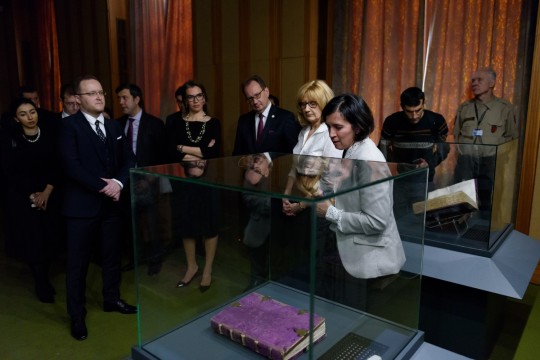

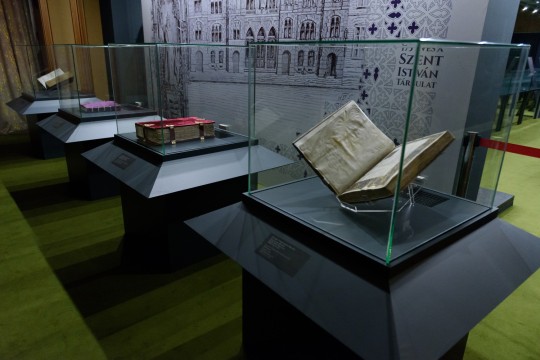
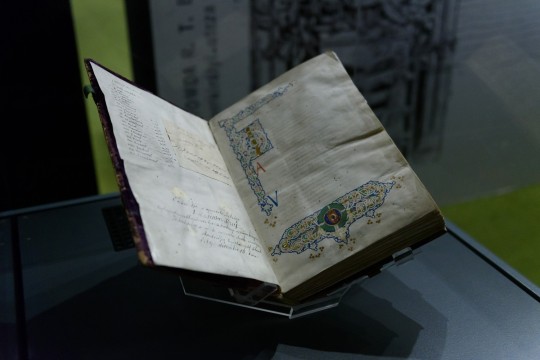
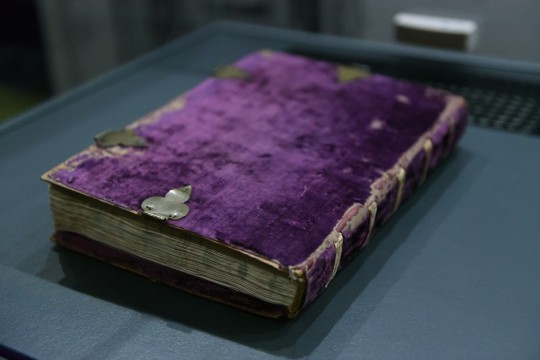



A Török-Magyar Kulturális Évad 2024 kapcsán tarott hétfői sajtótájékoztatón felbecsülhetetlen értékű corvinákat is bemutattunk, melyek még 1869-ben, Abdul-Aziz szultán ajándékaként kerültek vissza Magyarországra.
A diplomáciailag kiemelkedő eseményre akkor került sor, amikor Ferenc József császár és király a Szuezi-csatorna megnyitása alkalmából tisztelgő látogatást tett a szultánnál Isztambulban. Az uralkodó szintén diplomáciai gesztusként – hiszen csupán két év telt el a magyarokkal való kiegyezés óta – gróf Andrássy Gyula közvetítésével a négy pompás díszkódexet a Széchényi Országos Könyvtárnak ajándékozta. Erről a corvinákban található bejegyzések is tanúskodnak.
Az egykori könyvtár nagyjából 220 fennmaradt corvináját Európa és az Egyesült Államok könyvtáraiban, ötven gyűjteményben őrzik. Magyarországon öt közgyűjteményben ötvenöt corvina található, ebből harminchét az Országos Széchényi Könyvtárban. 2020-ban újult meg a Bibliotheca Corvina Virtualis internetes szolgáltatás, melynek célja, hogy Mátyás uralkodói könyvtárának fennmaradt és azonosított köteteit a virtuális térben egyesítse. 2022-ben újabb 37 digitális másolatot sikerült megszereznie az OSZK-nak, tavaly pedig további 26 digitális kódexet rendeltek meg. A beszerzett anyagok feldolgozása folyamatosan zajlik, a honlapra felkerülő kódexeket magyar és angol nyelvű tartalmi leírással látják el a szakemberek, a multimédia menü alatt pedig számos kisfilm is megtalálható.
Trapezuntius művei:
A történetíró Polybios műve:
A komédiaszerző Plautus műve:
Szent Ágoston műve:
#OSZKÉLET
6 notes
·
View notes
Photo


Andrássy Castle Tiszadob. Andrássy Castle is located in the north-eastern part of Hungary, in Tiszadob, Szabolcs-Szatmár-Bereg County. It was designed by Artúr Meinig, a.k.a. Arthur Meinig, for Count Gyula Andrássy, who was the second Foreign Minister of Austria-Hungary and first Hungarian prime minister.he building has four entrances in accordance with the four seasons, twelve towers for the twelve months, fifty-two rooms for the fifty-two weeks of the year and 365 windows for the 365 days of the year.[citation needed] Meinig got his inspiration from various other European castles, one of the most obvious manifestations of which is seen in the ceiling of the large L-shaped salon on the ground floor, which is an exact copy of the ceiling stucco of the Cartoon Gallery of Knole Castle in Kent, England.
5 notes
·
View notes
Text
Sissi — Schicksalsjahre einer Kaiserin (1957) [Sissi — Fateful Years of an Empress]
This was a good one! I was worried that it would end with Elisabeth's assassination and that I would have trouble writing a review in light of a certain unprecedented event which completely threw me off my groove, but it didnt, so that was good i guess
The plot was pretty all over the place, it starts with Elisabeth hanging out in Hungary with Gyula Andrássy and asking him to invite Count Batthyani (who swore to never give the imperial family the time of day because the emperor gave the order to execute his father) to his house so that she can talk to him on neutral ground and make peace with him. And she does! Kind of? Idk, she starts having some weird pains so she returns to Vienna pretty much immediately after that to have a doctor check up on her. Turns out that she has some kind of lung disease, oh nooooo, the doctor advises her to go to Madeira, both because she needs a change of air to help with her disease but also because she's contagious and should be away from Franz Joseph and her daughter. In Madeira, she spends the first weeks being depressed and not getting any better but then Ludovika comes by to cheer her up and get her moving again and they travel a bit and Elisabeth ends up making a full recovery. When Franz Joseph hears about this, he obviously wants to go to her as quickly as possible, he wants to meet her in Venice but his advisors are like "You need a political reason to go to Venice because shits been going and all of italy hates us and if you go there just for personal reasons, something bad might happen", so they decide to hold an opera gala with a big reception in Milan and they invite a bunch of italian nobles. But uh-oh, the italian nobles dont like austria so they all passive-agressively send their servants over in their stead and then to add insult to injury, the orchestra and singers start performing some opera-song about freedom and all the servants in the audience join in. But Elisabeth claps anyway, either showing that their attempt to insult just slid right off her or that she's supporting them, Im not really sure. At the reception, she and Franz Joseph passive-aggressively receive all the servants as though theyre the actual nobility, I dont know how this is helping them politically. But whatever, later on they get on a boat and drive (? whats the word you use for boats) to a church to meet the pope, but there are no adoring citizens cheering for them on their way, its a complete ghost town and the few people that are there just glare at them, so thats really humiliating. But then they arrive at the church and Elisabeth's daughter runs up to greet her after all these months/maybe years and all the people standing next to the church cheer and the pope loves her so its all good.
So that was a pretty underwhelming finale, both to the trilogy and just this film as a standalone. Like, the previous films both ended on these big victories ignore the fact that the wedding did not feel like a victory when I saw it that felt like they mattered and had been built up, but I think the troubles with Italy only got brought up like 25 minutes before the end so I found it hard to care about all that.
But idk, I still liked it overall, although writing out a summary of the plot really made me realize how messy it is. Honestly, I find it kinda hard to describe what exactly I even liked about this film specifically that isnt just all the stuff I liked about the previous ones (the acting, the sets, the costuming etc). I think Ive just gotten to a point where Im attached enough to (this version of) Elisabeth that Im pretty much fine with just watching her do whatever
I mean, I guess I liked that they softened Sophie for this one, I mean she's still strict with that everything-for-the-dynasty mindset but shes not actively causing problems with Elisabeth so that was kinda nice.
Actually, that reminds me of a scene that I really liked, it might be favorite in the film (although it does have some serious competition that I'll tell you about later). So, when Elisabeth comes back to Vienna after being in Hungary and she gets exhamined by the doctor, he doesnt actually tell her whats going on because its a really serious lung disease and he thinks she might not survive until the next year, but he does tell Sophie. Elisabeth finds out about this when she's allowed to get out of bed for an hour and decides to surprise Franz Joseph in his office at the exact moment Sophie decided to tell him about her condition, so she overhears everything including Sophie being like "yknow, since the empress is probably gonna die pretty soon and she hasnt produced an heir, we might wanna start looking into other women" which is so fucked up. But anyway, Franz Joseph sends her away and once he's alone he buries his head in his hands and starts crying, and he lets out such wonderfully pathetic little sobs it made me giggle and kick my feet. sighs dreamily. Men Suffering <3 (I mean that in a pervert way, not a terf way)
Then Elisabeth goes up to him and comforts him (shes using a different, hidden door than the one Sophie left through) and I liked that too, he doesnt hear her so he doesnt notice her approaching until she's already right next to him and gently puts a hand on his head, and it makes him kinda freeze up for a moment before he wipes away his tears and looks up to see that its Elisabeth, and hes still shocked for a moment and asks her how much she heard and she's like "I think Ive heard everything I had to hear" and then they hug and oughhhhhhh its a good scene. 10/10
Now, that other scene that I really like is one I like for how fucking insane it is. Its at the very start of the film, Elisabeth, Gyula and a bunch of his guys are doing a horserace and after being in the lead for a while, Elisabeth and Gyula lose the track and they basically just decide to give up and wander around together instead of joining back with the others. They walk and talk about how much they love hungary until they stumble upon a Romani camp where she hears a woman whos being beaten up by her husband cry for help. She walks up to them, yells at him and pushes him pretty hard and I think the husband slaps her in retaliation but Im not entirely sure. She definitely hits him with her riding crop and then the woman pours a bucket of water over, at which point Gyula finally intervenes and goes "HEY this is the queen of hungary". The woman and her husband both profusely apologize while Elisabeth just kinda laughs it off and walks away and as she's walking away, the husband starts beating the woman again.
Honestly, I dont think my description of that scene truly conveys how insane actually watching it was, it happens so suddenly and goes by so quickly, I literally yelped when the woman poured the bucket of water on her, a true roller coaster of emotion. That being said, as I was writing that down I realized that I felt weird saying that my favorite scene in this film is the one making a joke out of domestic violence, so I officially declare the other scene my favorite
And yeah, that's pretty much it for this one. It's a pretty flawed film but I liked it and I had a pretty good time watching it, I actually didnt feel any of that dread while watching (I mean, I was a little anxious because of the assassination-thing but I forgot about that pretty quickly). If I had to rank this trilogy from worst to best, the order would be: first film, third film, second film
0 notes
Text
BLL - follow-up
kicsit follow-up-olom ezt a BLL témát; ma is azt néztem; bár éppen eléggé el vagyok kenődve (mindentől)
(...)
***
#barguzin
na, szóval volt pár cikk a szeptemberi Dragomán György fb poszt alatt kommentben; az egyik ez volt:

(ezt úgy tűnik, hogy arcanumban később nem kerestem meg; úgyhogy csak így van meg)
innen jön egyébként Barátosi Baráth Benedek; itt van megemlítve
fotó:

BLL pedig így nézett ki (1940-ben)
meg a cikk infóinak kezdtem utána menni
arcanum hozzáférésem most nincsen, úgyhogy csak anélkül lesznek itt a találatok; de azért pár érdekes dolgot így is találtam
-
egyrészt az iskolái; hogy előtte hova járt, azt nem tudom; de találtam két ilyet:


maguk az iskolai értesítők így nem látszanak, persze; és ezt le kell ellenőrizni; de ez itt az, szerintem (tutira) (neve, születési hely, idő stimmel), hogy ő itt a diákok között van feltüntetve, 1907-ben és 1910-ben; 1910-ben volt 18 éves; akkor végezhetett
amúgy mintha ezt az iskoláját ő maga nem reklámozná magáról
jó iskolának tűnik:

ez alapján 1910-ben ő diák volt, ebben az aradi felső kereskedelmi iskolában
apja egyébként olyan, mintha lelkész lett volna
ebbe az iskolába kellett tandíjat fizetni; lehet, hogy valami módosabb rokona befizette (?)
*
1911 és 1913 közötti időszakból nem találtam semmit sem
a cikk alapján az érettségi után Kufstein-be ment, és ott elvette feleségül Vetscherra Saroltát
ezt én eléggé fenntartásokkal kezelném
semmi olyan infót nem találtam, ami ezt bármilyen szintem megerősítené
helyben biztos ki lehetne deríteni, hogy élt-e anno egy Vetscherra Sarolta Kufstein-ben
nekem a gugli csak azt adta ki, hogy a neve hasonlít a Vetsera-ra
szerintem a nevet innen vette:
Kufstein vára pedig egy nevezetes hely: elég sokan raboskodtak benne:
Vetscherra/Vetserra-ra, Kufstein-re nekem csak ezt sikerült kigugliznom
*
1912-ben viszont biztos, hogy megjelent a verseskötete; 80 oldalas, elég vastag; meg kéne nézni mindenképpen, hogy mi van benne; biztos valami életrajz is van benne; plusz valami infó arról, hogy mégis hogy sikerült ezt összehoznia 20 évesen
*
szóval hogy 1911-13-ban hol volt, azt nem tudom; lehet, hogy tényleg Kufstein-ben, de ennek utána kéne nézni
1910-ben még az iskolai névsorban
*
tegnap még néztem tovább a tászoktetőt is
1913-14 előtt nem volt ismert
hogy a helyiek ismerték-e, passz; de mintha ők sem
Lénárt Lajosként azt mondja, hogy Gyergyószentmiklósra járt iskolába, lakott ott, járt oda haza
ha az apja lelkész volt, akkor költözhettek; lehet, hogy valamikor gyerekként lakott ott
szóval tászok-tetőhöz lehet, hogy saját jogon is érzett közt; nem csak BBB mesélt neki róla
de foglalkozni vele ő csak később kezdett el (amikor publikálja is, az 1940-es években)
*
ez a Pesity Imre, aki összegrundolja neki a 25 éves emlékkönyvet, meg az iskolába is ő vitte be, nyugalmazott lelkész, és rokona; ez a fenti cikkben van benne
Jager Iréne is valami rokon, aki aztán a felesége (szintén a cikkben van benne)
de nem 1934-ben házasodnak össze, illetve nem akkor költözik Kerekegyházára, hanem sokkal korábban
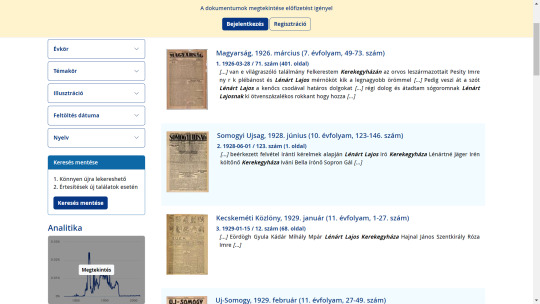
első cikk
1826-os Magyarságban megjelenik egy cikk róluk; valami csodakenőcsöt népszerűsítenek
ekkor már Kerekegyházán élnek
Lénárt Lajos is, Pesity Imre is
meg meg is van már nősülve
Andrássy Gyula utca 8 volt a házszáma (Vadászújságban van benne)
az pedig ez a ház:

a kis ház, szemben
(az egyik cikkben egyébként pont ilyennek írják le a házat, amiben lakik)

itt a cÍme
*
kábé ennyi, ennyi jutott most az eszembe
*
0 notes
Text




New pictures of Dominique Devenport (Empress Elisabeth) and Giovanni Funiati (Gyula Andrássy) in the second season of Sisi (2021).
#sisi#sisi (2021)#costume drama#historical drama#period drama#dominique devenport#Giovanni Funiati#elisabeth in bavaria#elisabeth of austria hungary#elisabeth of austria#gyula andrássy#gyula andrassy#german series#german tv#sisi.rtl
111 notes
·
View notes
Note
Hi! What was Andrássy's relationship with his wife like? My interest in 19th century Habsburg Europe is fairly new and so while I know the basic facts, I'm a little confused regarding the personal dynamics between these historical figures.
I read Hamann's biography on Elisabeth recently and while it (understandably) went onto detail regarding Andrássy and his dynamic with Elisabeth, it had, like, one line about Katinka. It got me wondering about her relationship with her husband and whether it was happy and/or respectful.
Hello! Sadly I can't answer much on this, since most of the sources about Andrássy (especially his personal life) are in Hungarian. He met his future wife, Countess Katinka Kendeffy, for the first time briefly in 1847, but it was during his exile in Paris when he approached her and propposed. Their marriage seem to have been a loving one, since they often wrote tender letters and remained devoted to each other until the end of Andrássy's life. He was, however, a womanizer and did cheated on her (I even remember reading somewhere he had an illegitimate child but I can't find it anymore so don't quote me on this). I don't know if Katinka knew about her husband's womanizing tendencies, but it seems it never affected their marriage.
I recommend following le_beau_andrassy_grof on Instagram if you want to learn more about Andrássy! They are Hungarian and have tons of post, both in Hungarian and English, with info about him I'd never read before (in fact my source for this answer was this post, go give it a like if you have an IG account).
6 notes
·
View notes
Text
Mediaset, ritorna su Canale 5 la serie-evento “Sissi”

Mediaset, ritorna su Canale 5 la serie-evento “Sissi”.
Pop star e influencer del suo tempo, Sissi – la leggendaria sovrana dell'Impero Austro-Ungarico – è un’icona che sembra avere fatto molti proseliti, da Lady D a Charlène di Monaco, da Soraya a Sua Maestà Imperiale Masako, da Maria Antonietta alla Duchessa di Sussex. HRH accumunate da bellezza, tormenti del cuore e dell’anima, moti di ribellione e spregiudicatezza.
Dal primo film muto del 1920 alla serie in onda in prima visione esclusiva e assoluta – con l’attesa seconda stagione da mercoledì 28 dicembre su Canale 5 – la vita di Elisabetta Amalia Eugenia di Wittelsbach presso la corte di Vienna continua a essere una grande fonte di ispirazione. Nel solo 2022, infatti, sono usciti, in streaming, The Empress e, al cinema, Corsage.
Il serial che ne racconta la storia – in chiave moderna, avvalendosi di grandi budget e girata on field tra la Baviera e il Baltico – è quella che vede protagonisti due giovani amanti, combattuti tra desideri personali e lotte di potere politico. Una rilettura pensata per una nuova generazione di spettatori, molto più vicina alla reale figura storica di Sissi, con scene ricche di passione e azione, tra location magnifiche, costumi e acconciature sontuosi e, al centro, l’amore matto e disperatissimo tra Sissi e Franz.
La donna più bella d'Europa – cupa e irrequieta, vittima di nevrosi, ossessioni e pensieri depressivi (sfiorò l’anoressia senza mai riuscire ad accettarsi fino in fondo) – combatte i crudeli dettami di corte e per i suoi ideali. L'Imperatrice Elisabetta sceglie l’amore e coltiva con energia le proprie passioni e inclinazioni, e vive con dolore le perfidie della corte di Vienna. E Franz, a sua volta, dietro la facciata di rigoroso sovrano dell'Impero Austro-Ungarico cela un turbinio di emozioni e sentimenti.
L’attrice svizzero-americana Dominique Devenport e il tedesco Jannik Schümann si sono mostrati perfetti per interpretare la coppia reale asburgica. Sempre più di rilievo, inoltre, in questa stagione, la figura impersonata da Giovanni Funiati, ovvero quella del Conte Gyula Andrássy. Storicamente condannato a morte dal Kaiser Franz, poi salvato da Sissi, Andrássy diventerà il Primo Ministro ungherese.
Nato a Gottinga nel 1991, cresciuto tra Italia, Francia e Germania, Funiati si è formato all’Accademia Statale di Musica e Arte Drammatica di Stoccarda, poi si è dedicato al teatro, al cinema e alla TV (tra cui, il film Francesco, di Liliana Cavani, e la serie Il Paradiso delle Signore).
Nata Duchessa, in Baviera, Elisabetta è stata uccisa a Ginevra, il 10 settembre 1898, a 60 anni, dall’anarchico Luigi Lucheni. L’uomo, al commissario che lo interrogava, dichiarò di averlo fatto “perché sono anarchico... perché sono povero... perché amo gli operai e voglio la morte dei ricchi”.
...
#notizie #news #breakingnews #cronaca #politica #eventi #sport #moda
Read the full article
1 note
·
View note
Text



Parliament and equestrian statue of Count Gyula Andrássy
Országház és Gróf Andrássy Gyula szobra
#Budapest#Будапешт#Pest#Пешт#Hungary#Magyarország#Ungarn#Hongrie#Венгрия#Országház#Andrássy Gyula#szobra#Gyula Andrássy#statue#Parliament#Parlament#статуя#парламент
1 note
·
View note
Text
Side Character Showdown
Smash or Pass
Winners Round One





#dutp#hottakesdutp#dress up time princess#time princess dreamtopia#dutp poll#dumb polls#winners round
0 notes
Photo



Walther Reyer as COUNT ANDRÁSSY in Sissi: Die junge Kaiserin (1956)
#perioddramaedit#perioddramagif#perioddramasource#weloveperioddrama#sissiedit#costumeedit#period costume#sissi trilogy#count andrássy my beloved#andrássy gyula
81 notes
·
View notes
